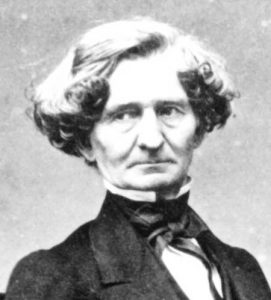“nobody understands me” – Berlioz
Well, Berlioz, let’s start with your hair. With a haircut like that, nobody is going to take you seriously!
Forget my hair! The hair is nothing. What I want is for people to understand my music!
Fair enough. So, what sort of music do you have for us today?
Ah, it’s my Damnation of Faust! I just adore this book by Goethe, even though it’s by a wretched German. As soon as I read it, I knew I had to write music for it.
Sounds good! So what did you write? a Faust Symphony like Lizst? an opera like Gounod?
Of course not! It has soloists, a choir, an orchestra …
Ah, so you wrote an oratorio! You know Schumann did that too …
Absolutely not an oratorio! Nobody wants another bloody boring cantata. My audiences made that clear when they first heard my masterpiece.
An opera then?
Well, it’s … eh … sort of … a “dramatic legend.”
Ok. So it’s an oratorio.
No, it is much more than that. My roles are to be acted and lived, not merely sung.
Ok, so let’s make it an opera.
We tried that already. My music is too magnificent to be brought down to the level of mere tomfoolery on a stage with idiotic costumes. *sigh* nobody understands me …
*pause* Well then, let’s talk about ways you might improve your hairstyle.


Recent Comments